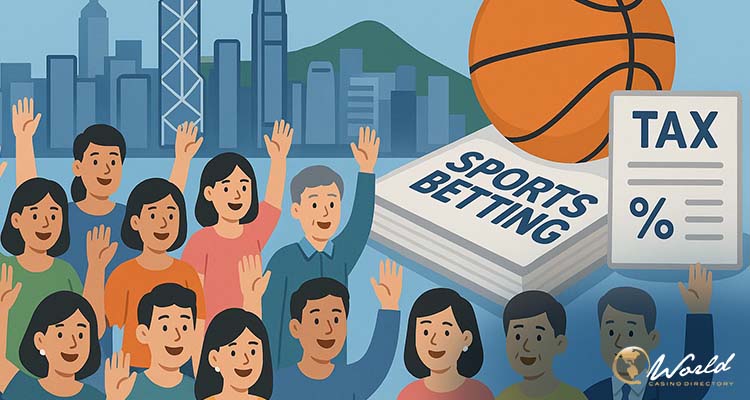Hong Kong is preparing to introduce legalized basketball betting, backed by overwhelming public support and a proposed 50 per cent tax on the operators’ net earnings. The initiative, currently under legislative review, aims to curb the widespread illegal betting market while introducing safeguards to protect vulnerable groups.
Following a one-month consultation period in April, the Home and Youth Affairs Bureau reported that 94 per cent of the 1,063 submissions endorsed the proposal to legalize basketball wagering. This endorsement came from various quarters, including academics, youth groups, and athletes, signaling a widespread acceptance of the initiative.
The government submitted its findings and legislative proposals to the Legislative Council on June 5, 2025, outlining a framework modelled closely after the existing football betting system. “The government’s policy is not to encourage gambling,” said Secretary for Home and Youth Affairs Alice Mak Mei-kuen, according to the South China Morning Post. “We adopt a multipronged approach targeting illegal betting.”
Proposed Regulations Mirror Football Betting Rules
Under the proposed system, licensed operators would be taxed at 50 per cent of their net stake receipts—essentially the total amount wagered minus payouts. This is consistent with the current tax structure for football betting and is expected to generate between HK$1.5 billion and HK$2 billion annually in tax revenue, according to Financial Secretary Paul Chan’s earlier budget speech.
The Hong Kong Jockey Club (HKJC) is expected to be the sole licensee, in a bid to avoid market competition that might increase gambling demand. According to HKJC’s estimates, illegal basketball betting alone accounted for between HK$70 billion and HK$90 billion in turnover last year. The new framework, the government argues, could channel much of this into regulated and taxed activities.
“The [betting] market is huge,” said lawmaker Adrian Pedro Ho King-hong. “At the same time, it’s an opportunity for a huge revenue upside.” He also noted that the proposed tax could potentially be increased further.
Safeguards to Address Youth Gambling Risks
To mitigate social harms, particularly those affecting young people, the government plans to introduce strict licensing conditions. These include bans on accepting bets from individuals under the legal age, prohibitions on credit card betting, and the requirement for clear warnings about the dangers of excessive gambling. Operators will also be compelled to provide resources for those suffering from gambling addiction.
Betting on games involving Hong Kong teams or matches hosted in the city will not be allowed, a move aimed at promoting a “betting-free and healthy culture” in local sports. Additionally, the scope of the Betting and Lotteries Commission will be broadened to oversee basketball betting activities.
Although the rate of gambling among 18- to 21-year-olds remains below 2 per cent, according to the HKJC, some stakeholders remain cautious. Counselling psychologist Augusta Yim Ting-ling from Zion Social Service expressed concerns that the shorter quarters in basketball—just 12 minutes—could encourage more frequent betting. “More considerations should be given in terms of whether the licensing conditions could really target the nature and features of basketball matches or not,” she said.
Concerns Persist Amidst Widespread Support
Despite the strong support, 3.4 per cent of consultation responses were opposed to the proposal. Critics, including the Hong Kong Committee on Children’s Rights, argue that legalizing basketball betting might glamorize gambling and lead to financial stress or psychological issues among youth. The group described the move as a “disastrous” policy shift.
The government, however, insists that a legal and regulated platform would help curb illegal betting. As Alice Mak noted, legalization would be considered only when unlawful activities become rampant, describing it as a “last resort” strategy.
Furthermore, supporters suggested that the revenue generated could bolster social services. Some even proposed that the HKJC channel a portion of its increased earnings into charitable and community development efforts.
The proposal is scheduled to be deliberated in the Legislative Council’s Panel on Home Affairs, Culture and Sports on Monday, June 9. If enacted, it will mark a significant expansion of regulated sports betting in the city and, the government hopes, a meaningful step in tackling illicit gambling while strengthening social safeguards.



